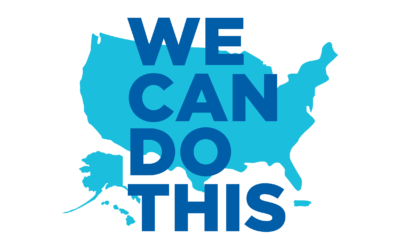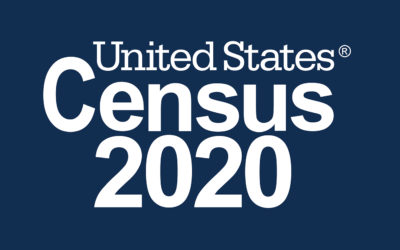
Credit: Womensday.com
A HEART TO HEART ABOUT CARDIOVASCULAR DISEASE
Knowledge is power, especially when it comes to our health. Take heart disease, for example. What you don’t know can prove fatal. Problems affecting the heart and its blood vessels are the number one killer of women in the United States. Even with these numbers, barely a third of African-American women are aware. Similarly, while half of all African-American women have heart diseases, only one in five believe they are personally at risk.1
Cardiovascular diseases kill nearly 50,000 African-American women2 each year – more than all other women – but it doesn’t have to be a death sentence. We can reduce our risk by understanding what causes heart disease, recognizing the symptoms, and taking proactive steps to prevent it. Simply put, it’s time to educate ourselves. Knowledge is power and in this case, it may save our lives.
WHAT CAUSES HEART DISEASE?
According to the American Heart Association, heart disease can take a variety of forms.
Atherosclerosis, also known as Coronary Heart Disease, is the most common form of cardiovascular disease. It develops when plaque attaches itself to the walls of the arteries. A plaque buildup can cause the arteries to narrow, making it harder for blood to flow through and easier for the blood to clot. When this happens, it can stop the flow of blood and lead to a heart attack or stroke.
Heart failure or congestive heart failure occurs when the heart is still working, but it isn’t pumping blood effectively or getting enough oxygen.
Arrhythmia is associated with a fast, slow, or irregular heartbeat. This can affect how well the heart is functioning and whether it can pump enough blood to meet the body’s needs.
Heart valve problems can lead to the heart not opening enough to allow proper blood flow. Sometimes the heart valves don’t close and blood leaks through, or blood flows backward into the upper chamber.
WHO IS AT RISK?
Black women are twice as likely to suffer from heart disease as their white counterparts. Why? Well, for starters:
- Nearly half of Black women have total cholesterol levels that are too high.
- Nearly 80 percent of African-American women are overweight or obese.
- Fifty-five percent of Black women are physically inactive.
- Thirty-seven percent of African-American women have high blood pressure.
- One in five Black women smoke.3
These factors, along with diabetes, aging and a lack of awareness increase our risk of developing cardiovascular problems.
WARNING SIGNS
Heart disease is often referred to as the “silent killer.” So how do you know if you are having a heart attack or cardiovascular distress? Women’s symptoms are very often different from those of men. For women, discomfort, or pain in the center of the chest that lasts more than a few minutes or comes and goes is a common symptom, and while sharp chest pains are a common symptom for men, women often encounter:
- Pain that spreads to the shoulders, stomach, neck, or arms.
- Lightheadedness, fainting, sweating, nausea or shortness of breath.
- Shortness of breath or trouble breathing.
- Sudden anxiety, weakness, or fatigue.
IMPORTANT! If you experience any of these symptoms or think you may be having a heart attack, don’t delay. Call 9-1-1, within five minutes, or less.
HOW TO LOWER YOUR RISK
Here are some proactive steps that you can take to embrace a healthier lifestyle and reduce your risk of developing heart disease:
- Eat healthily – limit the amount of salt and sodium you consume. Plan well-balanced meals that are low in fat and cholesterol and heavy on the fruits and vegetables.
- Get moving! – Commit to adding 30 minutes of moderately intense exercise like walking, dancing, or aerobics to your daily routine at least five times a week.
- Manage your blood pressure, sugar, and cholesterol levels and make a note of what is considered the healthy range.
- Maintain a healthy weight.
- Limit your alcohol intake. For women, this means one drink a day.
- Don’t smoke, and if you do, quit. Research suggests that one year after you stop smoking, the risk of heart disease drops by over 50%.
- Familiarize yourself with the risk factors and symptoms of heart disease and contact your doctor if you experience any of them.
MORE INFO PLEASE
To learn more about heart disease, visit the following websites:
American Heart Association:
www.goredforwomen.org/about-heart-disease/facts_about_heart_disease_in_women-sub-category/african-american-women/
Black Women Health Imperative:
www.bwhi.org/issues_and_resources/heart-disease-and-black-women-the-silent-killer-that-speaks-volumes
U.S. Department of Health and Human Services: National Heart, Lung and Blood Institute
https://www.nhlbi.nih.gov/health/educational/hearttruth/downloads/pdf/factsheet-actionplan-aa.pdf
Center for Disease Control and Prevention:
https://www.cdc.gov/dhdsp/data_statistics/fact_sheets/fs_aa.htm
♦♦♦
1https://www.goredforwomen.org/about-heart-disease/facts_about_heart_disease_in_women-sub-category/african-american-women/
2Ibid
3https://www.nhlbi.nih.gov/health/educational/hearttruth/downloads/pdf/factsheet-actionplan-aa.pdf
OTHER NEWS
The Black Women’s Agenda, Inc. Launches ‘I Am the Change’ Campaign to Fight COVID-19
Supported by a grant from the United States Department of Health and Human Services, The Black Women’s Agenda, Inc. on Jan. 31 will launch its national COVID-19 Public Health Education Social Media Campaign to narrow the gap of those impacted by the pandemic in the African American community. “I Am The Change: Addressing COVID-19 Here And Now!” targets members of BWA’s 24 National Collaborating Organizations, representing more than three million Black women in the U.S.
COVID-19
The Black Women’s Agenda endorses federal, state and local government public health warnings prescribed to mitigate the spread of Severe Acute Respiratory Syndrome Coronavirus 2 (SARS~CoV-2) (formerly called HCoV-19 and commonly called COVID-19).
The assertion that coronavirus only threatens older people has been debunked. While data is rapidly being compiled, COVID-19 is trending across all age demographics because of the potentially high transmission from virus shed in asymptomatic patients and the ability for the virus to remain infectious in the air for hours and on surfaces such as plastic and steel for days.
2020 Census Operational Adjustments Due to COVID-19
2020 Census Operational Adjustments Due to COVID-19
The 2020 Census is underway and households across America are responding every day. In light of
the COVID-19 outbreak, the U.S. Census Bureau has adjusted 2020 Census operations in order to:
• Protect the health and safety of Census Bureau employees and the American public.
• Implement guidance from federal, state, and local health authorities.
• Ensure a complete and accurate count of all communities.
© 2019 The Black Women’s Agenda, Inc. All Rights Reserved. Privacy Policy



